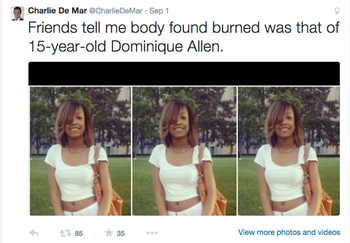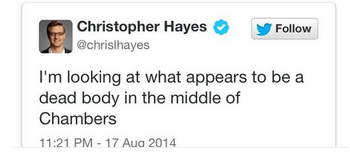Unlike the invisible gay agenda or feminist agenda, there IS an agenda for journalists. It's known as Society of Professional Journalists Code of Ethics and has been around since 1926.
This week that Code was updated and posted on the Society's website. (found here. ) It expounds on four key principle:
1.Seek Truth and Report It
2.Minimize Harm
3.Act Independently
4.Be Accountable and Transparent
Unbelievably in a mere month the media has denigrated itself further. (Indianapolis seems to have the market on this-even before Gannett decimated the Indianapolis Star.) It's more than a poor excuse for journalism -- these reports cause considerable emotional damage to individuals and families, and perpetuate stereotypes and half-truths.
Here are stories from the past month viewed through the lens of the above principles. First an example of sensationalizing without facts. The news video "The trial date has been pushed back for a Granger woman accused of throwing her baby in a dumpster"
Parts of story are true -- but the majority is assumption and not based on fact. No proof the woman took any medications; experts disagree if live birth or miscarriage, and the gestational age is also contested. What is true and not highlighted is that a woman is being charged with contradicting crimes: either death of a fetus (inside womb) or if that doesn't work, neglect of a dependent (born live).
Then a few weeks later, news reports the body of a burned 15-year-old were found next to a house. Police were not releasing the name nor was family confirming. Yet media gave us the story complete with Facebook photos.
Yes -- media identify a murder victim -- based on a friend. More photos from her FB were added by the reporter through the day as he solicited interviews from friends by posting his number in the comments section of their news page. All this based on friend's identification.
When IMPD did release her name and asked for public help , there was this :
Not what she was wearing but how she was dressed -- emphasis on "how. Needless to say the comments on these photos and victim blaming were pervasive. More harm by releasing the name and photos early, and on word of a friend.
In the midst of all this was Ferguson and the death of Mike Brown. Here national media was equal in skewed reporting. Photos of young men, bandanas covering their faces were shared as "looters" -- when in actuality they were local young men stepping in to stop those who tried to disturb the peaceful protests. ( the bandanas were due to the tear gas the police dispersed at will. )
Then MSNBC Chris Hayes showed up in Ferguson a few nights later.
He was immediately challenged by those of us following the livestreams of independent and smaller markets , as well as people on the scene. (no one else reported the body -- not even his own crew) His reply? Crickets. For a day and a half -- then a tweet that it was a car accident and non fatal. The fourth principle , transparency and accountability are nonexistent.
Why is any of this important? Over 4500 people retweeted C. Hayes in a few hours, many professional journalists. Media immediately shared and reprinted the above mentioned articles on Purvi Patel and Dominque Allen =- in essence not acting independently but recklessly. No fact checking of their own.
It is important because what happens in our world affects us all. One used to be able to trust networks and media -- and that is fading fast. Fortunately there are brave individuals with cell phone videos and cameras and those who stay on the front line reporting facts. Maybe the upswing to the Code of Ethics neglect by journalists is people will realize the depth of the sensationalism and begin to think for themselves.
Or media could follow the Code.
CORRECTION: This post previously dated the Society of Professional Journalists Code of Ethics to 1909. According to the SPJ website, the Code of Ethics was first "borrowed from the American Society of Newspaper Editors in 1926."


